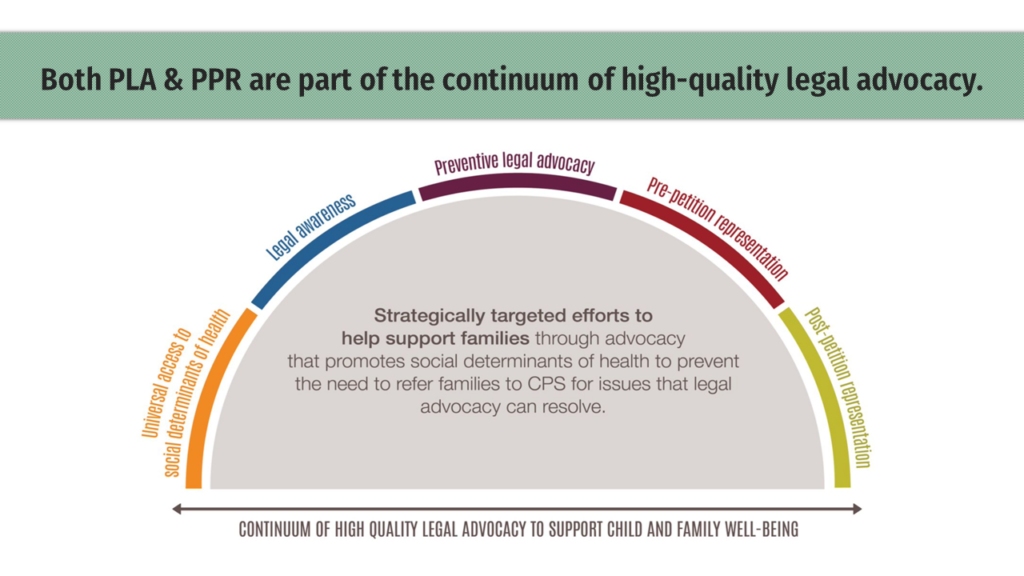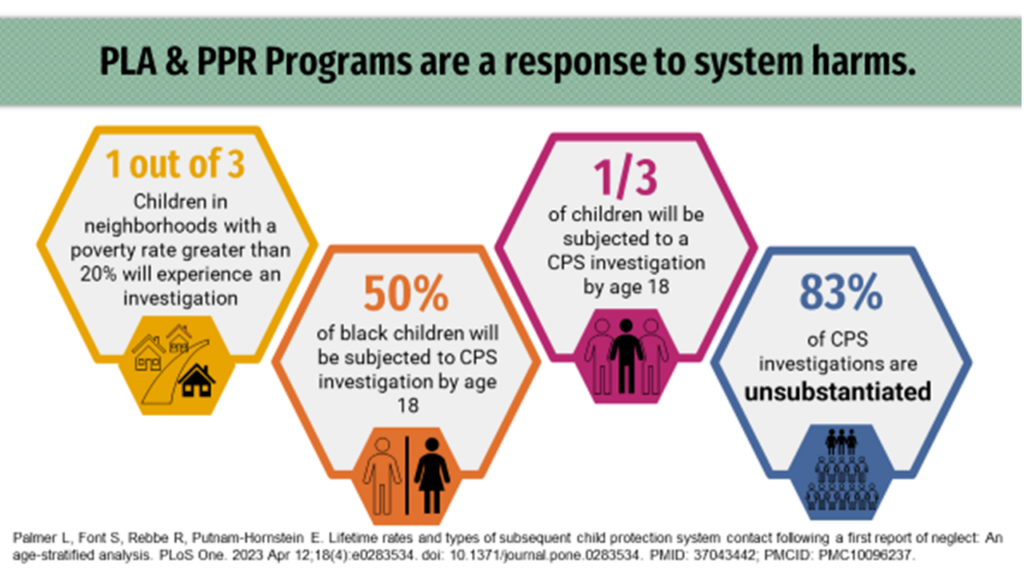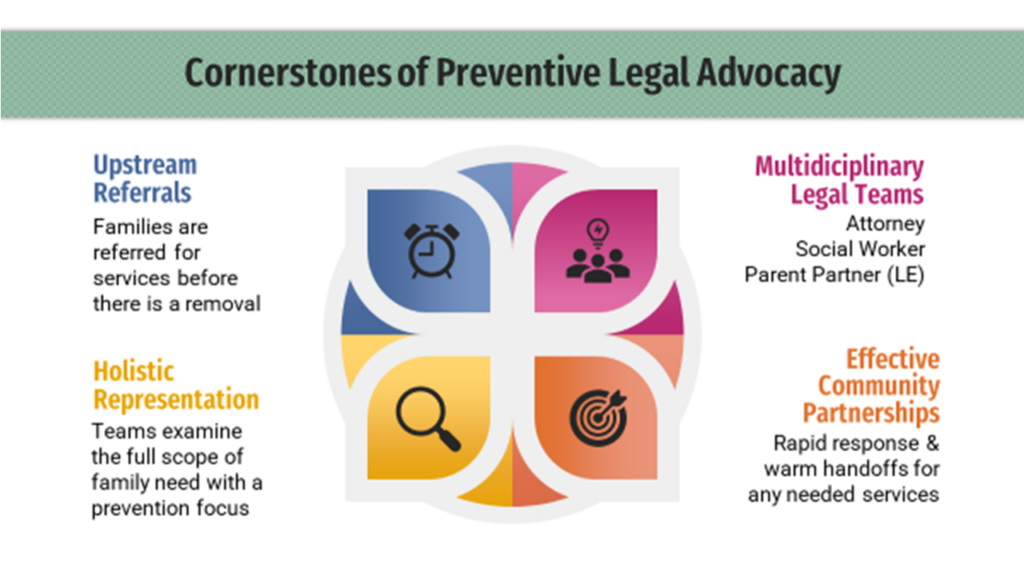Principles & Components
What is preventive legal advocacy and pre-petition representation?

Preventive legal advocacy (PLA) is part of the continuum of high quality legal advocacy designed to support child and family well-being. PLA refers to a wide range of proactive legal efforts aimed at safeguarding the rights and well-being of parents and families before they become entangled in the child welfare system.
Unlike traditional parent representation models that provide for legal representation only after a petition has been filed in court, PLA and PP programs seek to make legal services available to indigent families before there is a need for court intervention. PLA and PP programs are able to reach families early and reduce the need for foster care by staying rooted in the communities they seek to serve and targeting the underlying causes for system involvement.
Broadly speaking, PLA programs focus their efforts on educating families about their rights and providing legal representation to address destabilizing legal issues such as housing instability, domestic violence, lack of public assistance, educational concerns, immigration issues, and more.
Pre-petition representation (PP) is a type of preventive legal advocacy that focuses more narrowly on legal representation for parents facing CPS investigations and other acute situations that can quickly lead to family separation.
Preventive legal advocacy and pre-petition programs seek to empower families with the knowledge and resources necessary to maintain stable and nurturing environments for children. PLA and PP programs accomplish these goals by utilizing multi-disciplinary legal teams to provide holistic, client-centered representation. In doing so, these programs minimize the risk of involvement with child protective services and the trauma associated with entry into foster care.
Those who practice preventive legal advocacy and provide pre-petition representation believe that when families have the resources they need to thrive and the ability to receive natural support within their community, children are the ultimate beneficiaries, as they’re able to remain safely with their families and communities. PLA and PP practitioners further acknowledge that poverty is far too often conflated with neglect. They understand that this fact, coupled with ongoing racial inequities, has lead to pervasive racial disparity within the existing system. For this reason, much of the work of preventive legal advocacy is focused on addressing the material hardships and legal concerns that so often accompany poverty and racial inequities.




